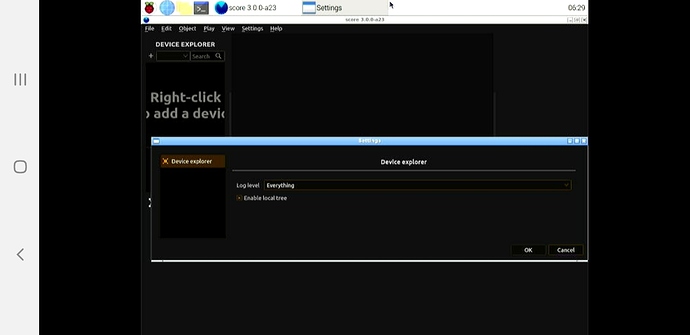Hello, I’ve been having trouble building score on a Raspberry Pi 3 with the 32bit Raspberry Pi OS. I’ve been following procedures that Thibaud kindly sent me. Firstly to set up dependencies as per this script:
I preceded this with:
sudo apt update
sudo apt full-upgrade
So far, so good.
I then clone the score git recursively, create a build directory with in it and from this build directory, I run the following:
cmake … -GNinja -DCMAKE_BUILD_TYPE=Release -DCMAKE_INSTALL_PREFIX=install -DSCORE_DYNAMIC_PLUGINS=1 -DSCORE_PCH=1 -DCMAKE_CXX_FLAGS=’-Ofast -march=native’ -DCMAKE_C_FLAGS=’-Ofast -march=native’ 2>&1 | tee …/configure$(date +"%Y-%m-%d_%H-%M").log
This runs OK. However, it notes that qtshadertools is needed for video, which I will be needing. I have not managed to get a build for Qt 5.15.1 on the Pi 3. I’ve tried cross compiling but so far with no success. Thibaud said however that it’s not necessary to build it and that packages are OK. I ran an sudo apt-cache search qtshadertools, but it didn’t come up with anything. Is there any package for it? I’m not able to build it without Qt.
I also needed to install libsndfile1-dev
My configure log after installing libsndfile1-dev is posted here:
https://escuta.org/webtemp/configure2021-02-18_08-05.log
Continuing on regardless, I ran:
cmake --build . 2>&1 | tee …/make$(date +"%Y-%m-%d_%H-%M").log
It fails, i think with problems do to missing boost files. From googling, it seems I have an old version of boost, however when I mentioned this to Thibaud, he said that the boost library should already be included with the Score repo.
see: https://escuta.org/webtemp/make2021-02-18_08-12.log
Can anyone please offer some suggestions?
Thanks!
